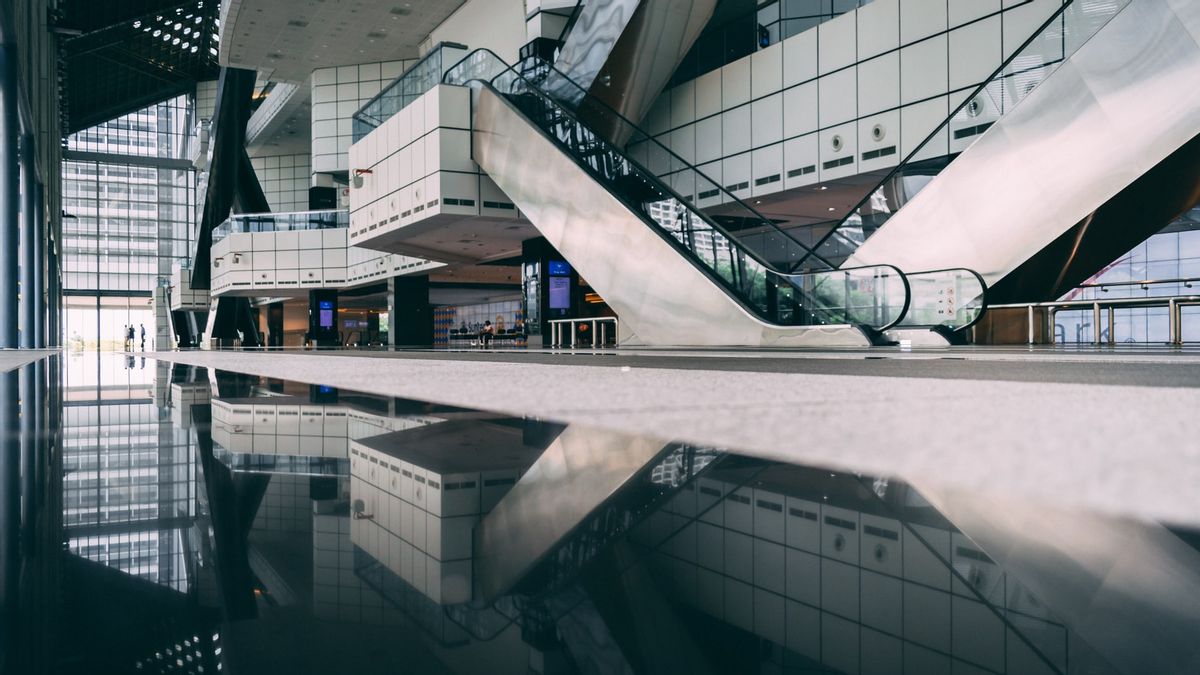JAKARTA - The government has highlighted the high number of COVID-19 cases in areas that have imposed restrictions on community activities (PPKM). PPKM volume II will be extended from January 26 for the next two weeks. This policy will further depress retail entrepreneurs and shopping centers.
Currently, conditions for retailers and shopping centers are critical. The COVID-19 pandemic and restrictions on community activities have caused the occupancy or occupancy of shopping centers to plummet. So that it has an impact on the company's cash flow.
During PPKM volume I, the occupancy rate of malls fell 8 percent to 32 percent. Whereas before the PPKM was implemented, the level of visits to shopping centers or occupations was at 40 percent from the conditions during the transitional regulation. The decrease in the number of visitors was due to restrictions on the operating hours of the shopping center which only lasted 19.00 WIB.
Not to mention, the rules for dine-in or eating at a place are only allowed as much as 25 percent, plus there is a rule for 75 percent for work from home (WFH) and only 25 percent for work from office (WFO). This condition forces shopping centers and tenants to reduce labor.
The Association of Indonesian Shopping Center Retailers and Renters (Hippindo) Budihardjo Iduansjah said that in order to last longer, retail entrepreneurs must be able to maintain their cash flow to stay healthy. Therefore, retail needs government assistance.
"The retailer's condition is already critical, like using a ventilator. You need oxygen to breathe. It is very difficult," he said, when contacted by VOI, in Jakarta, Friday, January 22.
The oxygen meant by Budi is fresh funding. He explained that these funds were used to pay employee salaries, pay rent to mall managers and pay installments to suppliers. Thus, there is a cash flow turnover.
"He needs financial assistance so that his heart beats. Because he (a retail entrepreneur) needs to pay off his debts. Now this is the number, the government has to inject. Abroad what is done, already knows. Suppliers cannot close and must open. Retail is a machine. "If the retail is stuck, the economy will not work," he said.
On the other hand, Budi said that the new rules in PPKM volume II where malls and restaurants are allowed to operate until 20.00 WIB, from the previous 19.00 WIB, at least, is quite helpful.
"At least, there is hope. The restaurant can open until 20.00 WIB, this will raise people's interest in coming to the mall. Because if the restaurant closes quickly, people will be lazy to go to the mall and have an impact on other stores in the mall," he said.
Even so, Budi regretted the 25 percent rule for restaurants to serve meals on the spot. According to Budi, this regulation still suppresses people's interest in coming to the mall.
"Until now, malls are not a cluster for the spread of COVID-19. We have implemented a very strict health protocol. The government should provide opportunities for entrepreneurs who have implemented health protocols to open longer," he said.
Budi said, he realized that currently active cases of COVID-19 in the country were indeed high. Because of that, the policy taken by the government must be appropriate in formula and cannot be beaten flat for.
"For example, stomach ache and cancer are not the same as the cure. In this mall we apply a layered health protocol. Entering the mall is checked, want to enter the supermarket is also checked again, checked into fashion retail. Give us the opportunity to occupy 50 percent. That's just the policy formula. the right one, "he said
Occupancy of only 25 percent, said Budi, did not rule out the possibility that employers would reduce their employees. However, here it is not pure layoffs but rather being sent home temporarily.
The English, Chinese, Japanese, Arabic, and French versions are automatically generated by the AI. So there may still be inaccuracies in translating, please always see Indonesian as our main language. (system supported by DigitalSiber.id)













